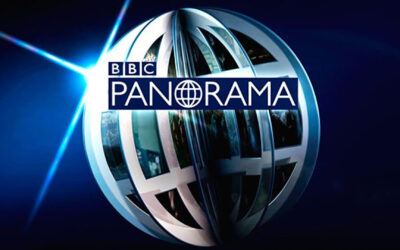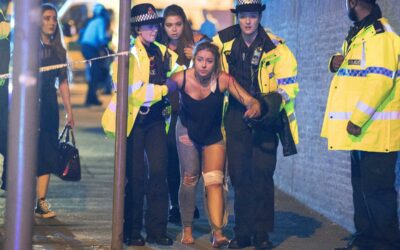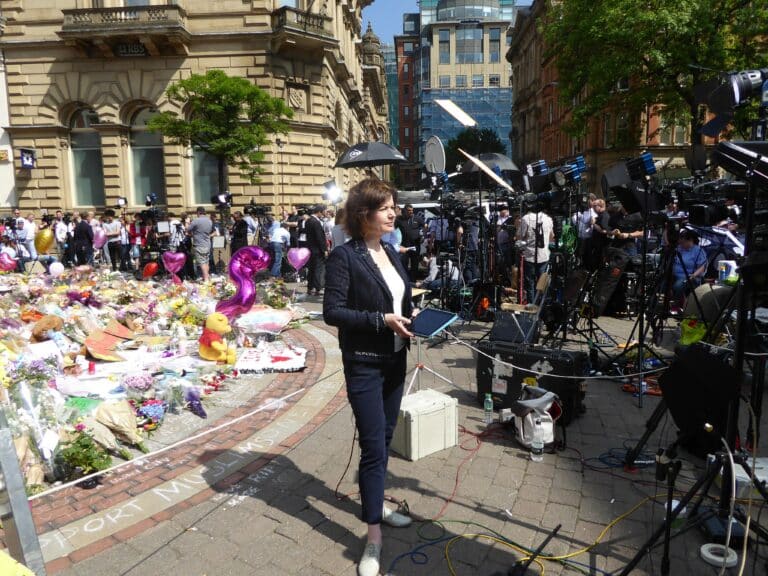An investigation by BBC Panorama and Radio 4 podcasts has uncovered that conspiracy theorists, who claim UK terror attacks have been staged, are tracking down survivors to their homes and workplaces to see if they are lying about their injuries.
The film, debuting tonight (Monday October 31) at 8pm on BBC One, follows the BBC’s disinformation and social media correspondent Marianna Spring as she speaks to survivors of UK terror attacks, as well as the conspiracy theorists who have targeted them, to uncover how and why these conspiracy theories have gained traction. It is accompanied by a 10-part Radio 4 podcast, also available today on BBC Sounds and broadcast on Radio 4 at 9.45am.
Research by King’s College London for the BBC suggests that almost a fifth of more than 4,000 people, weighted to be representative of the UK population, think attack victims are not telling the truth about what happened to them, and one in seven had doubts that such terror attacks even occurred.
14 per cent of respondents to the survey believed that the 2017 Manchester Arena attack probably involved so-called ‘crisis actors’ who pretended to be injured.
Lisa Bridgett, a survivor of the Manchester Arena attack, who broke her ankle and lost one of her middle fingers in the blast, was tracked down at her place of work by a conspiracy theorist, called Richard D Hall. He posed as a customer, with the aim of secretly recording her, to discover whether she was lying about her injuries.
The conspiracy theorist, based in Wales, has described on his website how he physically tracks down survivors of the Manchester Arena attack – in which 22 people were killed and more than 100 injured – to determine whether it was staged. Hall suggests that those who were killed are alive and living abroad.
He profits from selling books and DVDs outlining his theories that terror attacks were staged, as well as speaking at events and posting videos online. As recently as mid-October, he had more than 16 million views and 80,000 subscribers on YouTube.
One of the videos shared online by Hall featured his visit to the boatyard where Bridgett works. Hall says he brought a hidden camera with him as he wanted to discover whether she was lying about the injury to her hand. He also named her children and shared photographs of her workplace in his book.
Bridgett told Panorama: “You just don’t know who’s out there and who might be lurking in a garden or standing round a corner with a hidden camera on. And they’ve got no right to do what they’ve done, taking our stories individually and ripping them apart.”
Martin Hibbert, another victim of the 2017 Manchester Arena attack, also spoke to Panorama about how he and his family have been targeted by Hall.
Hibbert was left paralysed from the waist down following the attack, and his daughter Eve, now 20, has been left severely disabled due to a brain injury.
In a video shared with his followers online, Hall demonstrates setting up a camera to film Eve to see whether she can in fact walk. Hall later said online that Eve left the house in a wheelchair, but added: “There’s no evidence” that the injury was as a result of the attack.
Hibbert, who is preparing to bring a libel action against Hall, told Panorama, “I’m all for freedom of speech, but it crosses the line when you’re saying I’m an actor or I’ve not got a spinal cord injury or Eve’s not disabled, she’s not in a wheelchair.”
The investigation reveals how conspiracy theories and tactics like those of Hall are emblematic of a wider phenomenon that survivors and bereaved families are experiencing.
Messages seen by the BBC show how online abuse, citing conspiracies that Hall and others promote, has been sent to the grieving relatives of the Manchester Arena bombing victims, as well as survivors of other UK terror attacks. There have been attempts by online trolls to identify where terror survivors live and work.
Professor Bobby Duffy from King’s College London’s Policy Institute, who led the research into the popularity of conspiracy theories about UK terror attacks, told the BBC: “Belief [in these conspiracy theories] is higher among those who rely on social media and messaging services for their information about news and events.”
He fears that those who believe these theories are more likely to target survivors with abuse.
Of the 14 per cent surveyed who believe crisis actors were involved in the Manchester Arena attack, almost half said Telegram is a key source of information on news and events for them. They were also more likely to be under 24 years old and not have voted in the last election.
The research suggests that the pandemic has created a “gateway” for these conspiracies, with a third of people surveyed saying it has made them more suspicious of official explanations of terror attacks. Prof Duffy expects the current economic climate to exacerbate this tendency.
Spring attempted to interview Hall himself at a market stall where he sells a book and DVD about the Manchester Arena attack, along with other content promoting conspiracy theories, for her investigation, but he declined to discuss his “evidence, and stated that he doesn’t trust the BBC. He also declined to respond to a further written attempt from the BBC to present evidence to the investigation.











